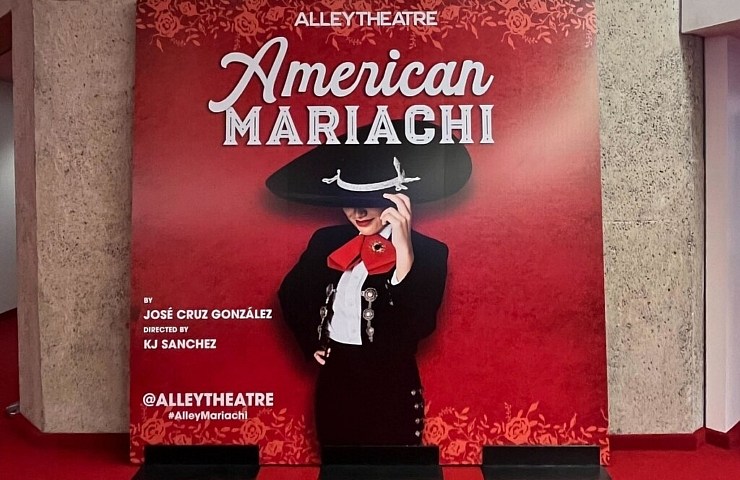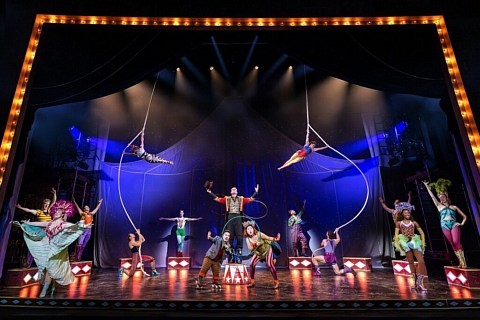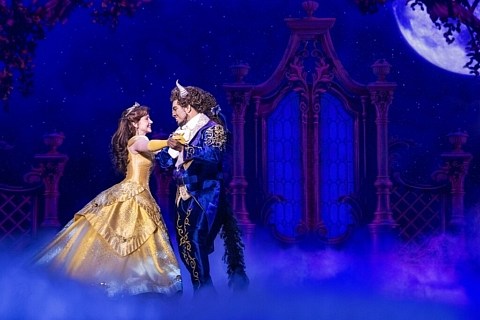I had the opportunity to watch ‘American Mariachi’ on Oct. 5. Written by José Cruz González, this play defines mariachi music in the perfect light. It is a beautiful way to commemorate the month-long celebration of Hispanic Heritage Month. The Alley Theatre in downtown Houston will be showing ‘American Mariachi’ performances from Sept. 22 to Oct. 22.
As a Mexican-American student, I have grown to take pride in the colorful, vibrant and musical history of my culture. A live mariachi band and colorful zarapes decorated the Christmas tree in the lobby, pushing my hopes higher for ‘American Mariachi.’ The Alley Theatre did not disappoint in cultivating an environment that properly recognized the beauty of Mexican culture.
Lights dimmed and the spotlight shined on Lucha Morales played by Gianna Digregorio Rivera, a humble Mexican student speaking to her mother Amalia Morales who was played by Sarita Ocon.
On the set of the Morales family living room, a photo of JFK hung on the wall and a record player sat on the shelf. The play was set in the ‘70s. Along with the typical religious relics placed sporadically throughout the set, I immediately felt immense nostalgia for my own grandmother’s home. Within minutes of the first scene, Lucha is met with the unfortunate decision to quit school and take care of her mother who has fallen sick, slowly losing her memory.
One of the only things that seems to bring Lucha’s mother back to reality is music.
It is shown later that Lucha’s father Federico Morales, played by Orlando Arriaga, is in a mariachi band. Amalia’s deep musical connection lives in the love for her husband and her deceased Tia Carmen, notably played by Maria Alegre who was once also a mariachi performer. With this realization, Lucha and her cousin, Briana J Resa’s Hortensia “Boli” Perez, set a goal to begin an all-women mariachi band.
Steady musical scores and live mariachi band performances occur throughout the play while the audience follows the journey of Lucha and Boli. In search of women who will follow their hearts and disregard the strong toxic Hispanic masculine belief that women should not play mariachi music, they visit different churches.
Finally, through many ups and downs, the characters eventually round up Isabel played by Diana Irais Alcaraz-Villa, Gabby played by Elissa Cuellar and Soyla played by Maggie Bofill. Forced to practice and find musical instruments in secret from the men in each of the women’s lives, they turn to Lucha’s Godfather Mino played by Hugo E. Carbajal.
The girls reach their seemingly impossible goal of creating an all-women mariachi band just in time for the unfortunate yet expected ending of the story.
The natural talent of each performer is displayed through the soul-soothing singing and gut-wrenching monologues. The play exhibits the use of tradition in renditions of classic songs such as “Sabor a mi,” or “La Llorona” and integrates the Spanish language in the script.
This performance relays the truths of the deep-rooted trials and tribulations of a Mexican woman’s rise into success and self-fulfillment. It is through stories such as these that the power of a Mexican woman is appreciated and understood. ‘American Mariachi’ brings the unique history of Mariachi music to life through tears and sweet laughter.
‘American Mariachi’ is a play for people of every culture and background. Any viewer can connect to this performance through the recollection of personal family experiences and memories. In every aspect, ‘American Mariachi’ is a performance worth watching.






Recent Comments